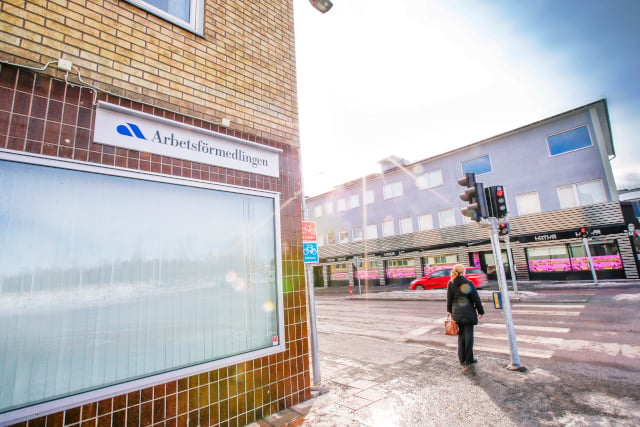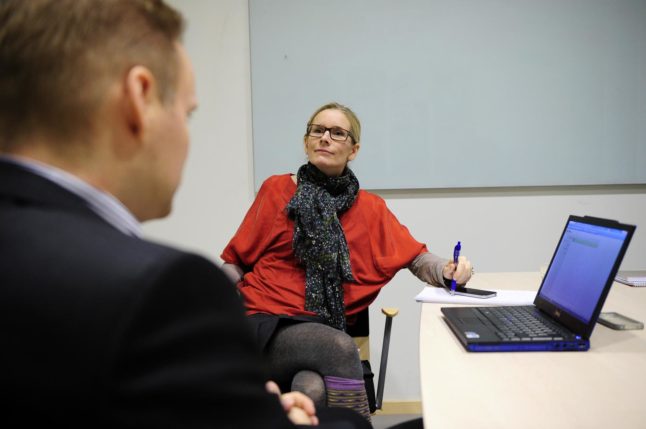The decision was announced earlier in March, as The Local reported at the time, just a month after the agency said it would lay off around 4,500 of its staff.
And on Thursday, it announced the municipalities where job centres were expected to close in 2019 or 2020 (see list at the end of this article), with a total of 132 centres affected.
Three municipalities were set to lose more than one job centre, with three each closing in Gothenburg and Stockholm and two set to close in Älvdalen in central-west Sweden.
In the affected areas, the employment agency is expected to use the premises of municipalities, and work out of citizens' service centres home to other national agencies.
READ ALSO: Everything you need to know if you lose your job in Sweden
Meanwhile, a total of 106 offices would remain open around the country, with varying opening hours. In some smaller offices, employees would travel there only for pre-booked appointments with local customers.
“Reducing the office network is necessary. We are in the middle of a restructuring process [requiring job cuts for] 4,500 employees due to the budget conditions we have for the year. We cannot carry out such a large staff reduction without making changes to the number of offices,” the agency's director-general Mikael Sjöberg said in a statement.
The agency also noted that a growing number of customers choose to get in contact with Arbetsförmedlingen digitally, and have initial meetings over an online chat service, phone or video calls.
FIND A JOB: Browse thousands of English-language jobs in Sweden
Here are all the municipalities where Arbetsförmedlingen plans to close its job centres:
Ale
Alvesta
Aneby
Arboga
Askersund
Berg
Bjurholm
Bjuv
Boden
Borgholm
Bromölla
Bräcke
Burlöv
Båstad
Dals-Ed
Dorotea
Eksjö
Emmaboda
Enköping
Fagersta
Falkenberg
Falköping
Falun
Finspång
Flen
Forshaga
Grums
Gothenburg (three centres)
Hagfors
Hallsberg
Hallstahammar
Hedemora
Hofors
Hylte
Hällefors
Härjedalen
Härnösand
Härryda
Hässleholm
Höganäs
Karlskoga
Kil
Kinda
Klippan
Kristinehamn
Krokom
Kumla
Kungsbacka
Laholm
Landskrona
Laxå
Leksand
Lerum
Lessebo
Ljusnarsberg
Lund
Malmö
Malung-Sälen
Malå
Mariestad
Mark
Markaryd
Mellerud
Mullsjö
Munkedal
Munkfors
Mönsterås
Mörbylånga
Nora
Nordanstig
Nordmaling
Norsjö
Nybro
Ockelbo
Olofström
Orsa
Ovanåker
Partille
Piteå
Ragunda
Robertsfors
Ronneby
Sigtuna
Skara
Sorsele
Sotenäs
Stenungsund
Stockholm (three centres)
Storfors
Storuman
Strängnäs
Sunne
Svedala
Svenljunga
Sävsjö
Söderhamn
Sölvesborg
Tanum
Timrå
Tingsryd
Tomelilla
Torsby
Tranemo
Trelleborg
Tyresö
Täby
Ulricehamn
Upplands Väsby
Uppvidinge
Vaggeryd
Valdemarsvik
Vansbro
Vindeln
Vårgårda
Vänersborg
Vännäs
Ånge
Årjäng
Åsele
Åstorp
Åtvidaberg
Älvdalen (two centres)
Ängelholm
Örkelljunga
Östhammar
Östra Göinge
Övertorneå



 Please whitelist us to continue reading.
Please whitelist us to continue reading.
Member comments